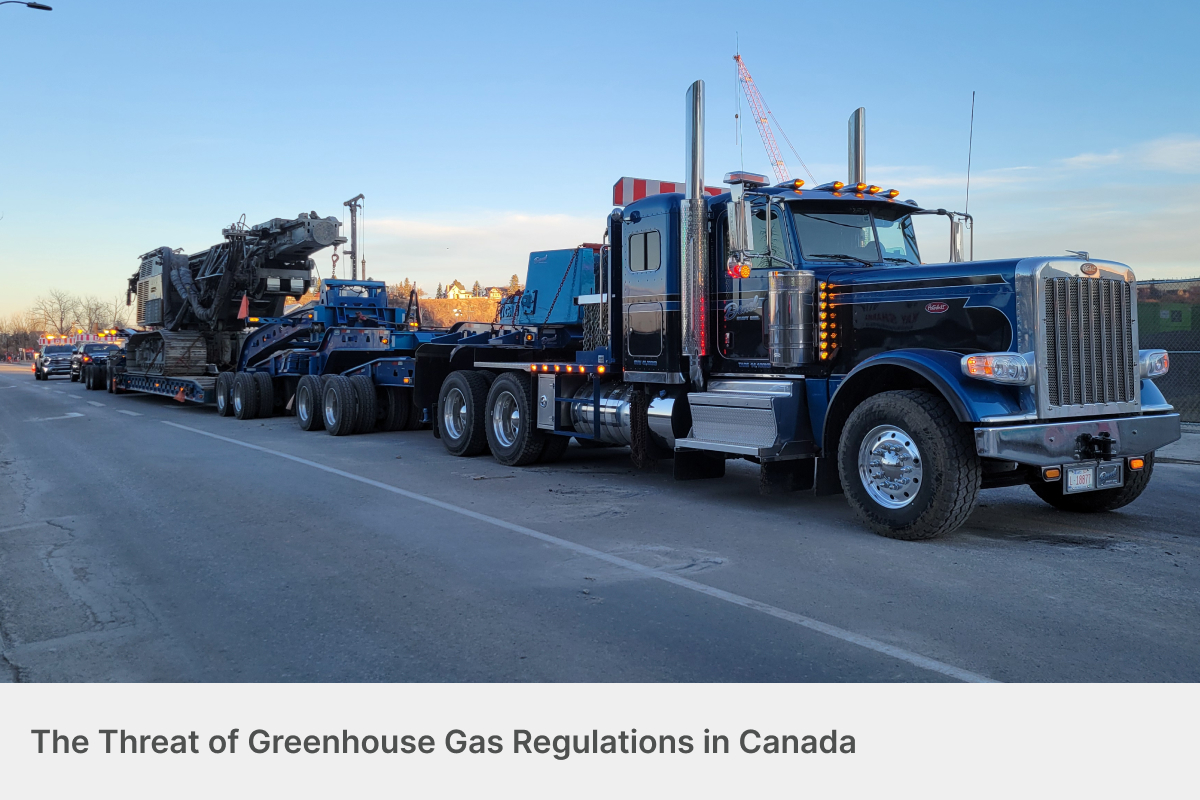Canada’s Federal Heavy-Duty Vehicle and Engine Greenhouse Gas (GHG) Emission Regulations, introduced by Environment and Climate Change Canada (ECCC), pose a significant threat to several key industries, including Oil and Gas, Agriculture, Logging, and Construction.
These regulations appear to be modeled primarily around highway transportation, with little consideration for off-road, heavy-haul, and rough-service applications. As a result, there’s a growing risk of a critical shortage of suitable trucks, which could have severe consequences for these vital sectors.
How Do the Regulations Work?
The system operates on a credit-based framework. Every truck manufacturer must maintain a neutral or positive credit balance. Trucks designed for highway use, featuring aerodynamic designs, lower horsepower, highway tires, and automated transmissions, may earn up to 100 credits. In contrast, trucks built for heavy-duty, off-road use, often equipped with aggressive tires, higher horsepower engines, and standard transmissions, can score as low as -150 credits (or even lower!).
This means the production and availability of essential heavy-duty trucks are directly linked to the number of low-emission highway trucks a manufacturer can sell — a problematic imbalance.
Why It Doesn’t Work for Canada
These regulations are heavily based on similar rules by the U.S. Environmental Protection Agency (EPA), but they do not account for Canada’s unique climate and geography. For example, the tire types needed to achieve high credit scores may be unsafe or unsuitable in many Canadian regions, particularly in winter or remote areas.
What About Alternative Fuels?
Disappointingly, alternative fuels offer limited relief under this system. Natural gas-powered trucks receive little to no improvement in credit scoring. Electric trucks, on the other hand, can earn over 3,000 credits — yet no manufacturer has been able to produce an electric truck that can reliably meet the performance needs of most heavy-duty applications in Canada.
Is Change Coming?
In the United States, there is growing momentum to relax these GHG regulations, although states following California Air Resources Board (CARB) standards are already experiencing truck shortages. Canada, however, has not made any adjustments. In fact, by 2027, the standards are set to become even more stringent — a change that could severely limit truck availability nationwide.
What Can Be Done?
Our dealer group is actively collaborating with the Alberta Motor Transport Association and the Canadian Trucking Alliance to raise awareness of this issue at both the provincial and federal levels. We urge all stakeholders and concerned individuals to join this effort.
Write to your Member of the Legislative Assembly (MLA) and Member of Parliament (MP). Use your voice, your connections, and your platform to bring attention to this critical matter. Only through collective industry action can we hope to bring about the necessary changes to this legislation.

